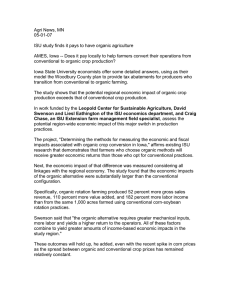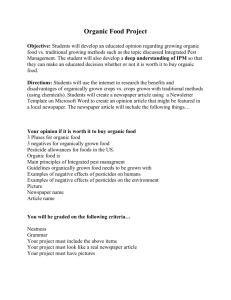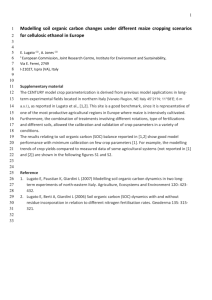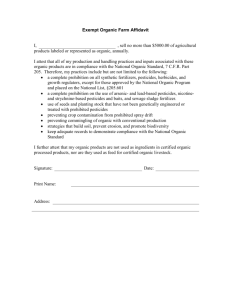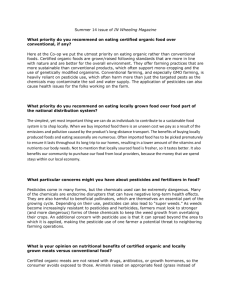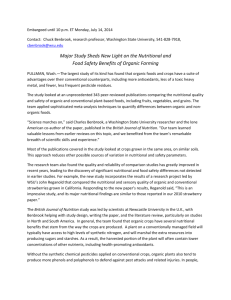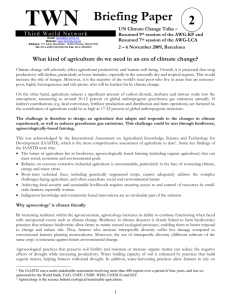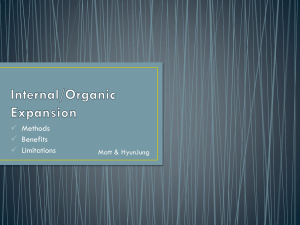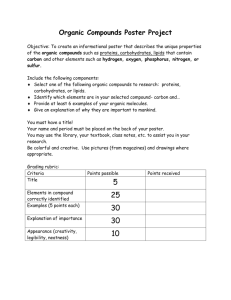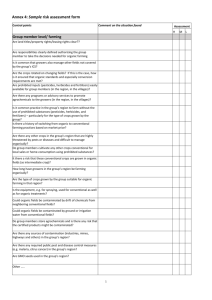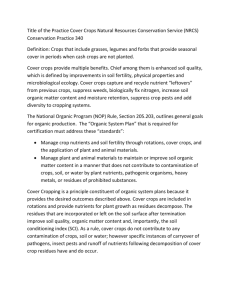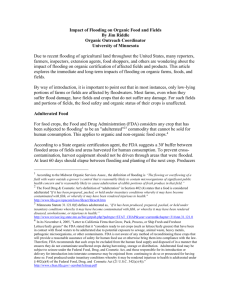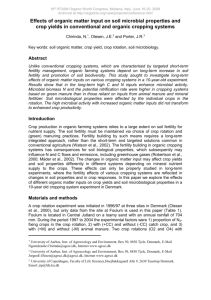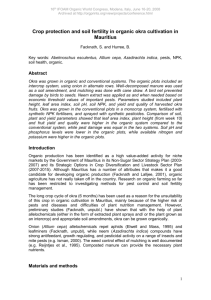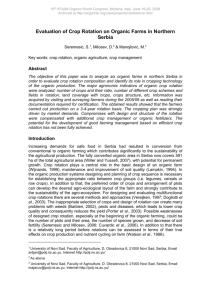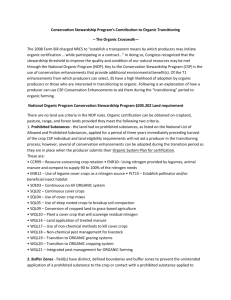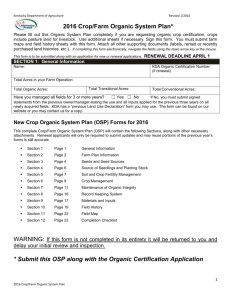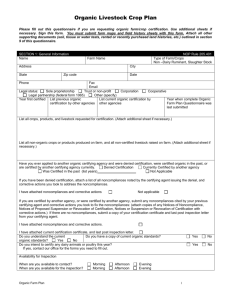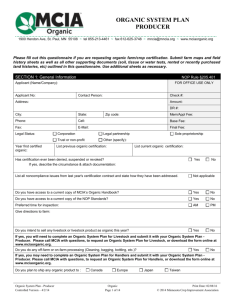Organic or Conventional Handout
advertisement
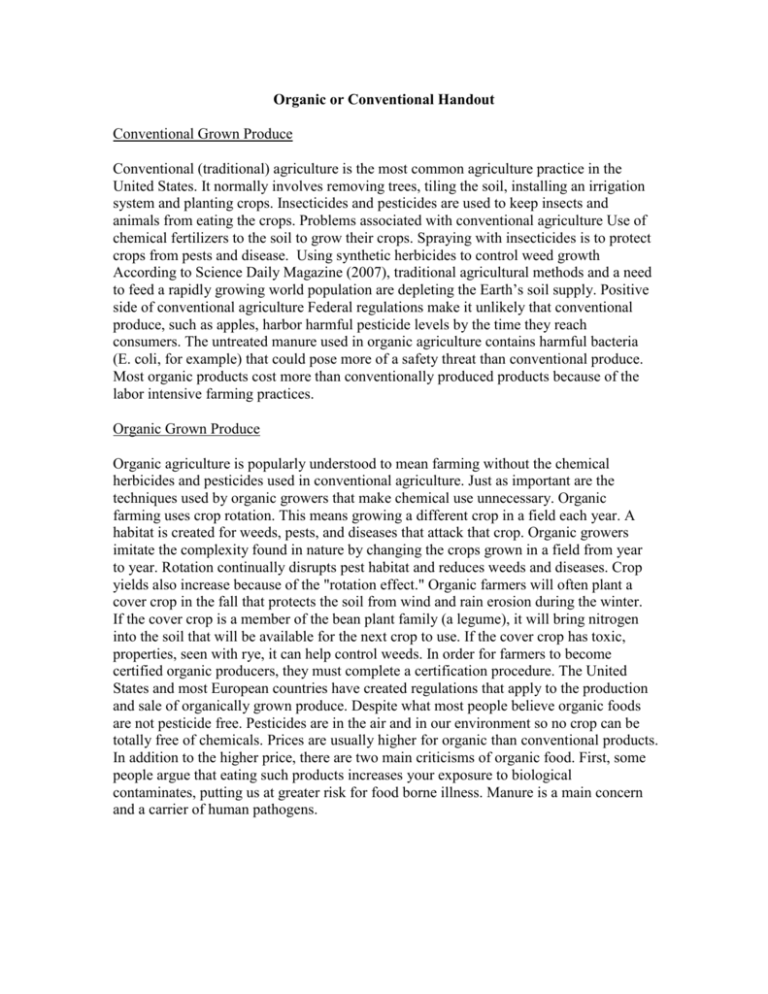
Organic or Conventional Handout Conventional Grown Produce Conventional (traditional) agriculture is the most common agriculture practice in the United States. It normally involves removing trees, tiling the soil, installing an irrigation system and planting crops. Insecticides and pesticides are used to keep insects and animals from eating the crops. Problems associated with conventional agriculture Use of chemical fertilizers to the soil to grow their crops. Spraying with insecticides is to protect crops from pests and disease. Using synthetic herbicides to control weed growth According to Science Daily Magazine (2007), traditional agricultural methods and a need to feed a rapidly growing world population are depleting the Earth’s soil supply. Positive side of conventional agriculture Federal regulations make it unlikely that conventional produce, such as apples, harbor harmful pesticide levels by the time they reach consumers. The untreated manure used in organic agriculture contains harmful bacteria (E. coli, for example) that could pose more of a safety threat than conventional produce. Most organic products cost more than conventionally produced products because of the labor intensive farming practices. Organic Grown Produce Organic agriculture is popularly understood to mean farming without the chemical herbicides and pesticides used in conventional agriculture. Just as important are the techniques used by organic growers that make chemical use unnecessary. Organic farming uses crop rotation. This means growing a different crop in a field each year. A habitat is created for weeds, pests, and diseases that attack that crop. Organic growers imitate the complexity found in nature by changing the crops grown in a field from year to year. Rotation continually disrupts pest habitat and reduces weeds and diseases. Crop yields also increase because of the "rotation effect." Organic farmers will often plant a cover crop in the fall that protects the soil from wind and rain erosion during the winter. If the cover crop is a member of the bean plant family (a legume), it will bring nitrogen into the soil that will be available for the next crop to use. If the cover crop has toxic, properties, seen with rye, it can help control weeds. In order for farmers to become certified organic producers, they must complete a certification procedure. The United States and most European countries have created regulations that apply to the production and sale of organically grown produce. Despite what most people believe organic foods are not pesticide free. Pesticides are in the air and in our environment so no crop can be totally free of chemicals. Prices are usually higher for organic than conventional products. In addition to the higher price, there are two main criticisms of organic food. First, some people argue that eating such products increases your exposure to biological contaminates, putting us at greater risk for food borne illness. Manure is a main concern and a carrier of human pathogens.
